10 most bizarre flying machines in aviation history
Categories: Technology
By Pictolic https://pictolic.com/article/10-most-bizarre-flying-machines-in-aviation-history.htmlThe invention of flying machines that allow people to travel into the Earth's atmosphere is a list of the greatest innovations of mankind. Aviation challenge the limits, and in this area all the time there are new ideas, but the aircraft listed below, are not even remotely fit the concept of the "norm".
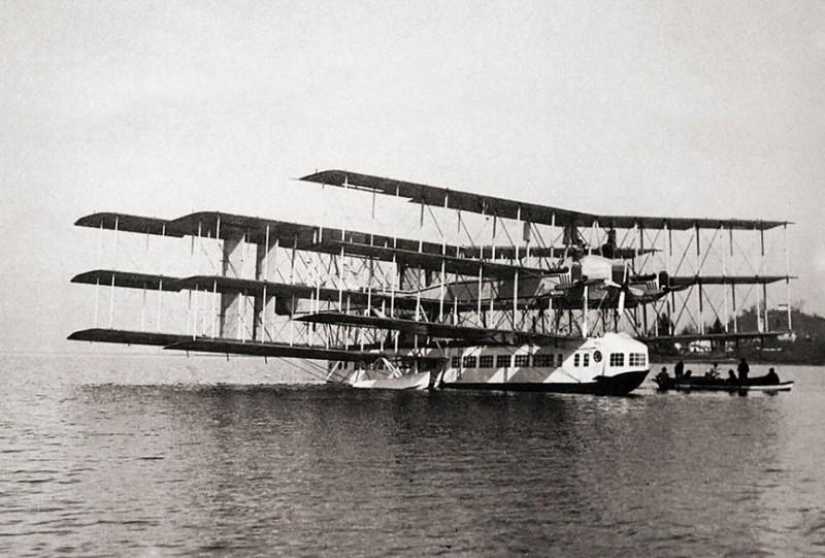
V2 Convair Sea Dart
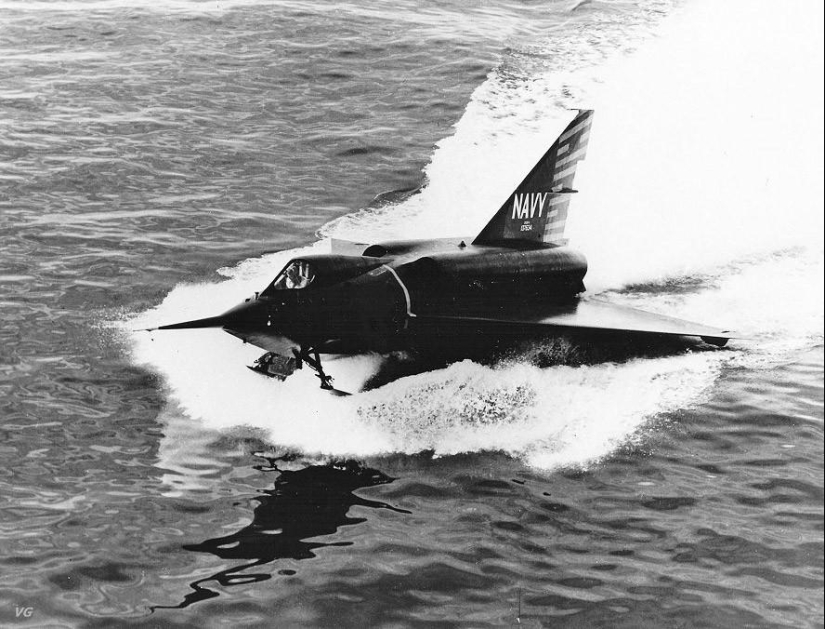
In addition to the standard planes, pilots are sometimes available very interesting specimens of aircraft. The fighter, which now will be discussed, could land directly on the surface of the ocean. And he greatly expanded the duties of the pilots during turning them from ordinary pilots operators in ski gear.
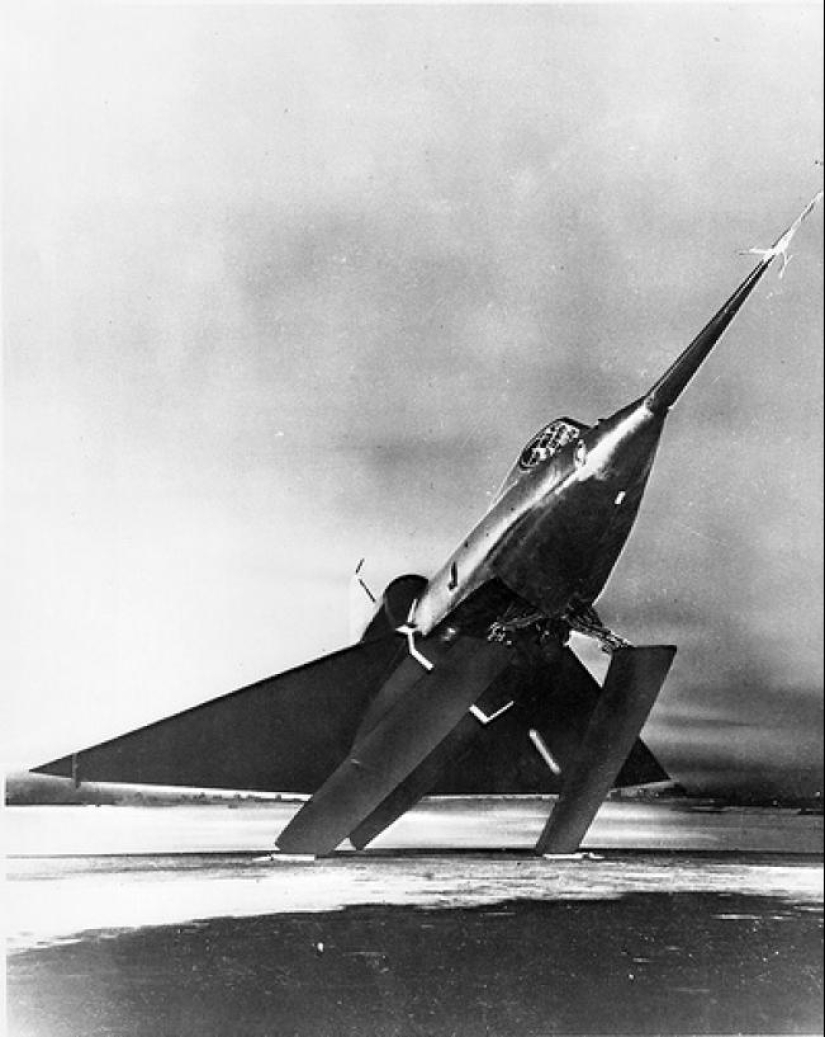
V2 Convair Sea Dart was an American experimental fighter built in 1951 as a prototype supersonic seaplane equipped with waterproof shell and a pair of hydrofoils.
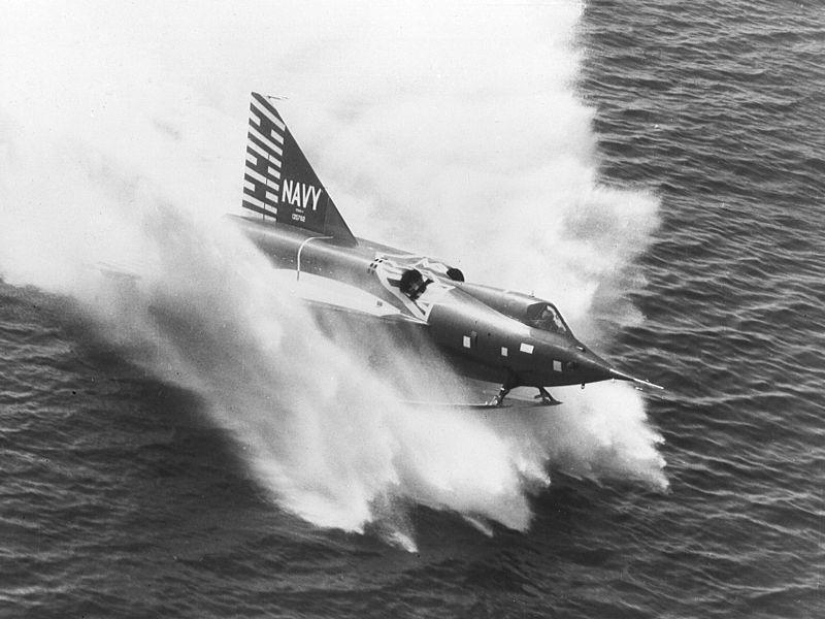
From the production of the fighter, it was decided to withdraw after the disaster, which ended with the death of the pilot. Nevertheless, he became the first (and currently only) seaplane to break the sound barrier.
Goodyear Inflatoplane
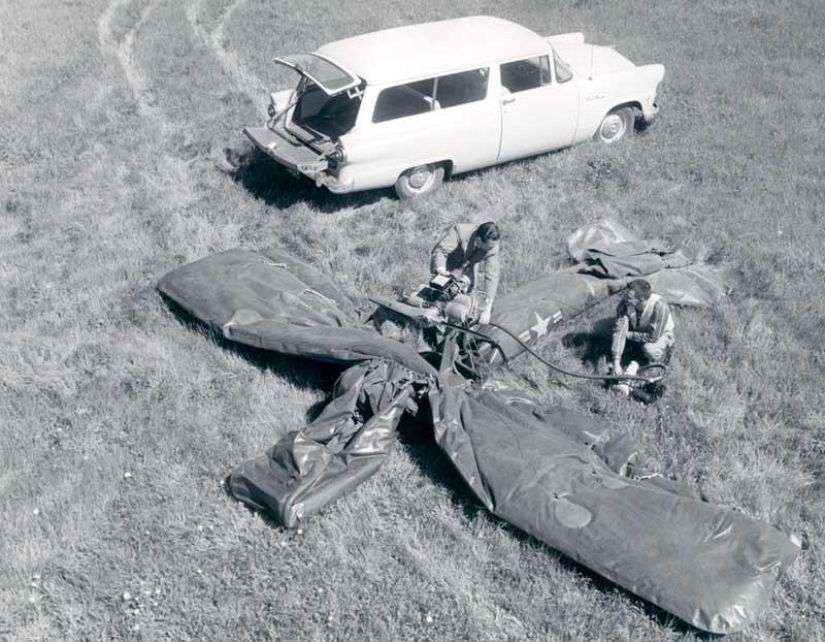
When the company producing tires come onto the market aircraft, we should expect a very unusual results. In 1959, the company Goodyear Tire tried to meet the market demands on small and comfortable on the plane, and her answer to these queries was very bizarre. Open cabin Goodyear Inflatoplane was fully made of rubber.
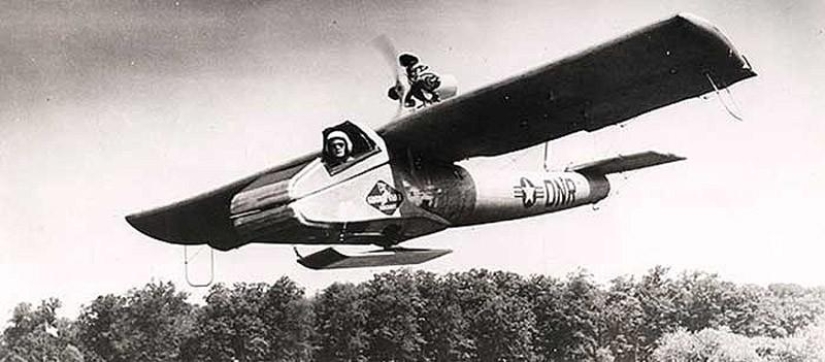
In fact, it was all rubber except the engine and wires. The aircraft can be put in a box with a length of 1 meter, and it can be fully inflated with ordinary Bicycle pump in just 15 minutes. From the aerodynamic point of view, the car was excellent, as it rose into the air with incredible ease. Nevertheless, the Goodyear Tire company is faced with serious problems. They could not convince the military to buy their offspring after the military learned that the plane can be shot down with just one bullet or even a shot from a slingshot.
NASA A1 Pivot Wing
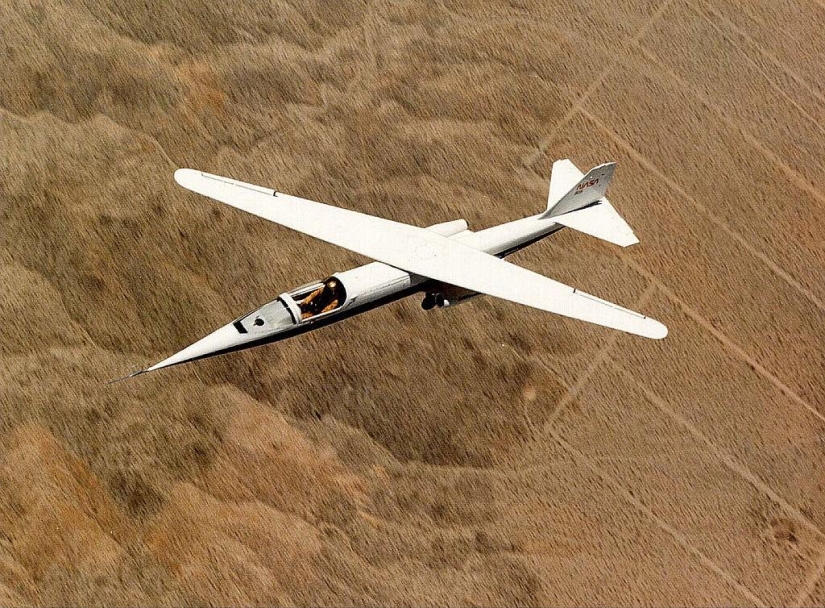
NASA A1 Pivot-Wing was able to raise the concept of "strange aircraft" to a whole new level. It was developed in the early 80‑ies in order to test the concept of a pivoting wing. A long, thin wing jet aircraft that could turn into such an extreme angle that is almost parallel to the cockpit. The idea of this unorthodox and exceptional innovative approach was that in such a way to compensate for the vortex disturbances of the air flow.
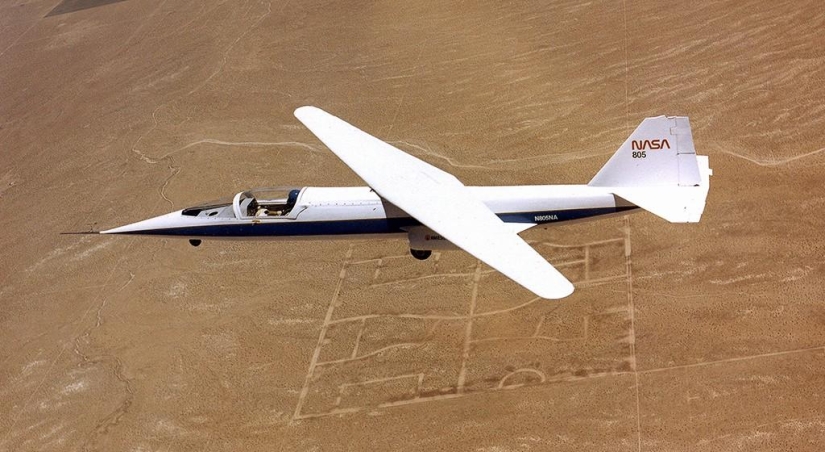
Strange aircraft made several flights, and he flew surprisingly well, but the results still were not deemed sufficiently compelling to justify the cost of its production. Nevertheless, modern drones, which are based on the design of this aircraft is currently under development.
Vought V‑173
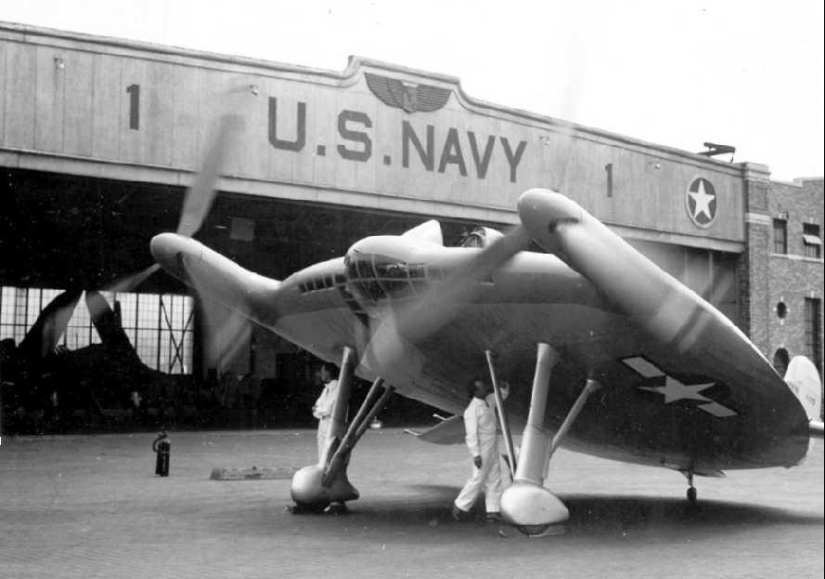
Vought V‑173 was developed in 1942 as the prototype aircraft with vertical takeoff and landing capable of intercepting enemy fighters, flying from the deck of an aircraft carrier. Strange design test pilots have nicknamed the aircraft "flying pancake".
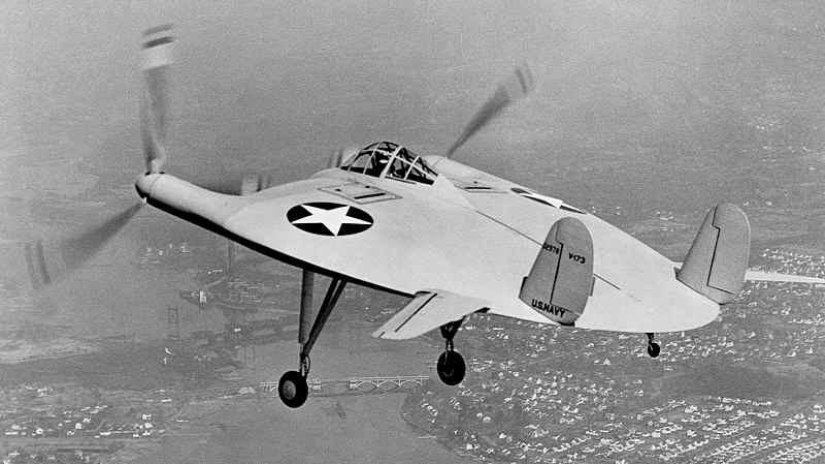
Its fuselage had a circular form. Pair of motors to drive the propellers of enormous size, which did not touch the ground during takeoff only due to the lengthened landing gear. Low demand and one accident decided the fate of this project, however, it began development in this direction, which in the end led to the emergence of the famous Harrier Jump Jet.
Bell P‑39 Aircobra
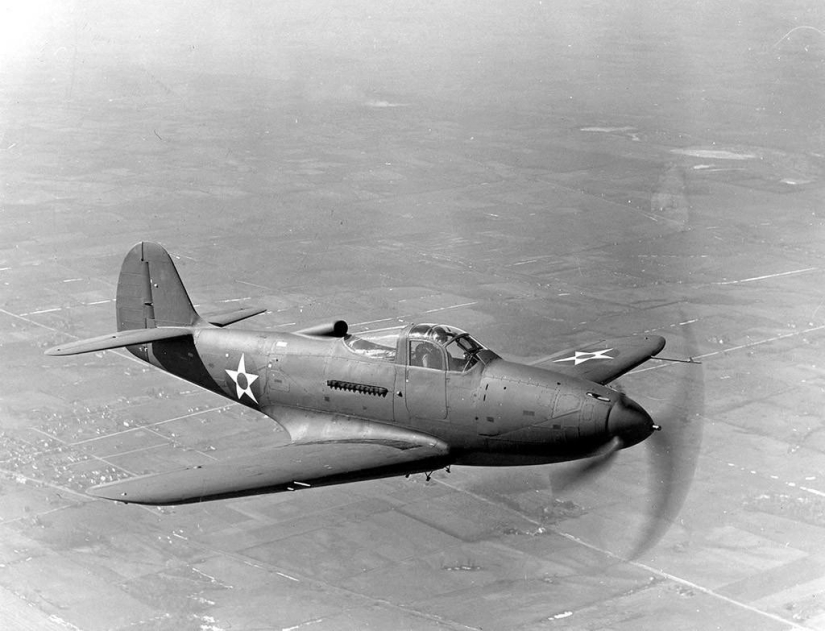
Still sometimes it's best experts to stick to only what they know really well. During the Second world war, the company Bell Helicopters has released a powerful and extremely agile fighter with excellent fighting characteristics.
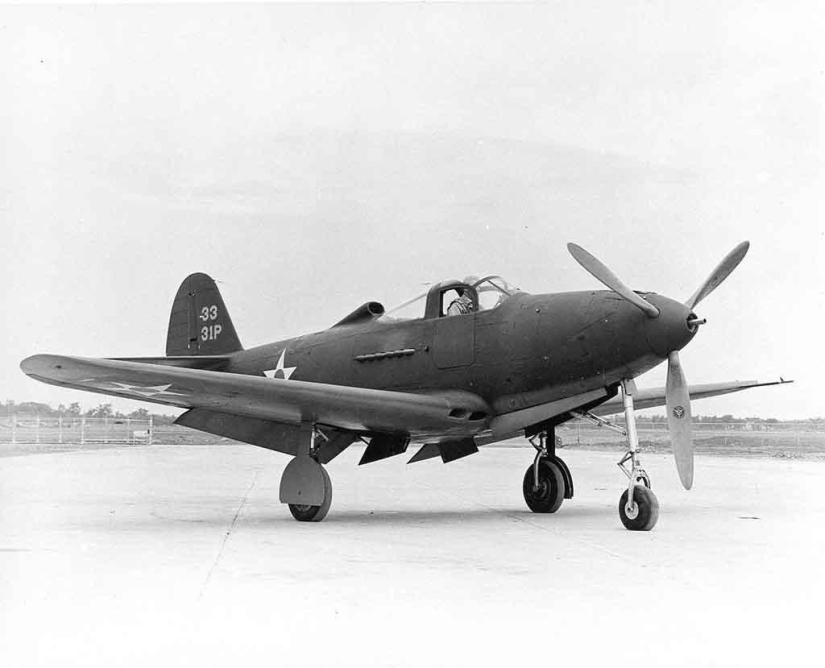
Most aircraft engines are located at the front, however, the Bell being a helicopter company, has created a fighter with the engine, the center of which was located behind the cockpit. Long shaft coming from the engine rotates the propeller in the front, however this design has led to an unusual location of center of gravity of the machine. This "celestial snake" during the war shot down far more enemy aircraft than any other fighter in the us air force. However, some cobras have died because they were shot down by the enemy, but because they fell themselves, easily falling into a spin even due to small mistakes pilots.
SR 71 Blackbird
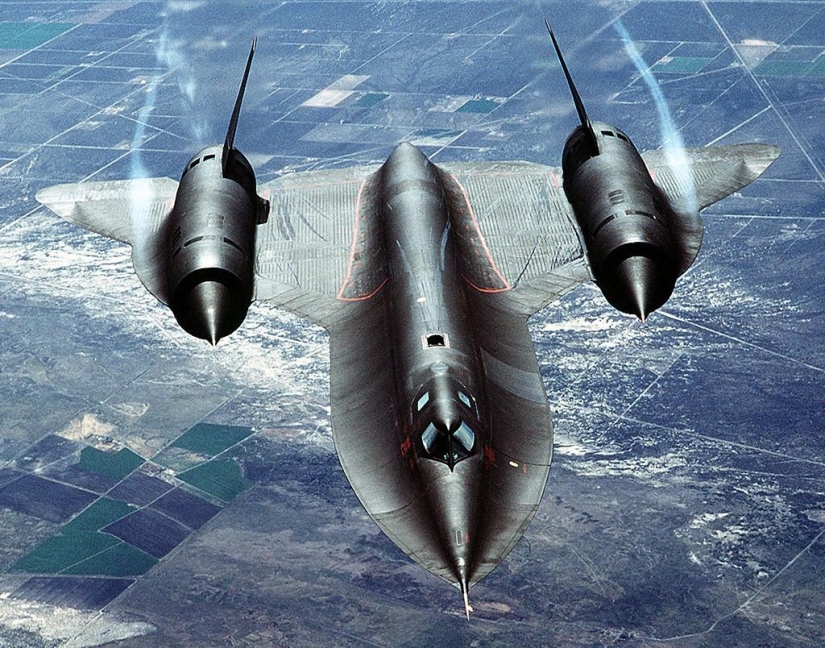
SR 71 Blackbird was created before the era of universal satellite technology. It was the first of its kind reconnaissance aircraft, with unprecedented speed and range. He was able to rise to the top, and he looked terrible, almost alien spacecraft.
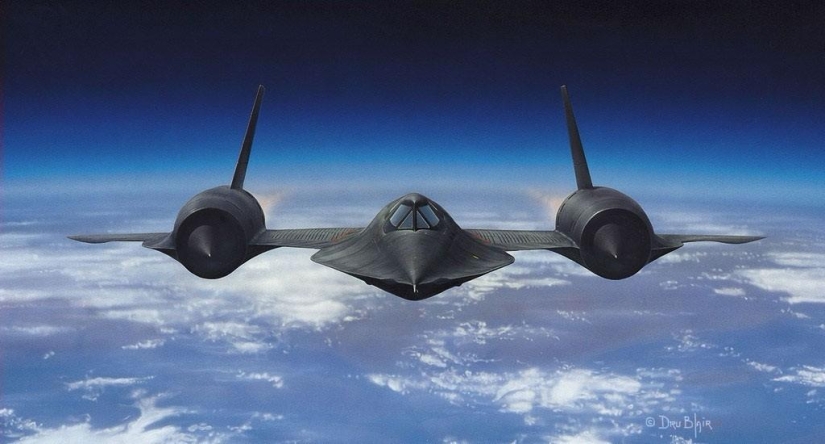
However, in the construction of the SR 71 Blackbird was seriously flawed. Once the plane up to an altitude of 7 km and accelerate to the speed of 3,300 km/h, as its outer covering was heated to 400 degrees and began to glow red. This hell of a picture of the outside of the cabin wasn't pilots. Although the cabin was insulated with asbestos, the pilots still had to sit there for half an hour after landing, not singe his feet at the exit. Even the transparent canopy is heated to 300 degrees.
Convair Pogo
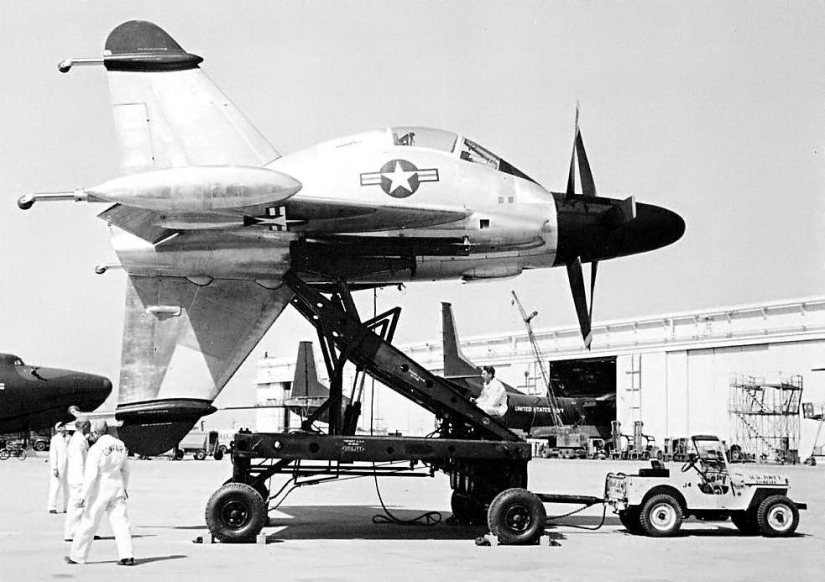
The Grumman X23, aka Pogo, was a radical departure from all of the norms of the aircraft. It wasn't even something eccentric, it was a full-blown absurdity. In appearance Pogo a little like a normal plane, if not pay attention to a jet engine, mounted in the nose cone of the apparatus. This engine allow Pogo to take off vertically. That's only in contrast to the majority of aircraft with vertical takeoff and landing, the nose Pogo before takeoff bullied up at a right angle, so that the pilot in the cockpit is almost lying like an astronaut in a rocket.Only after this preconditioning Pogo could fly.
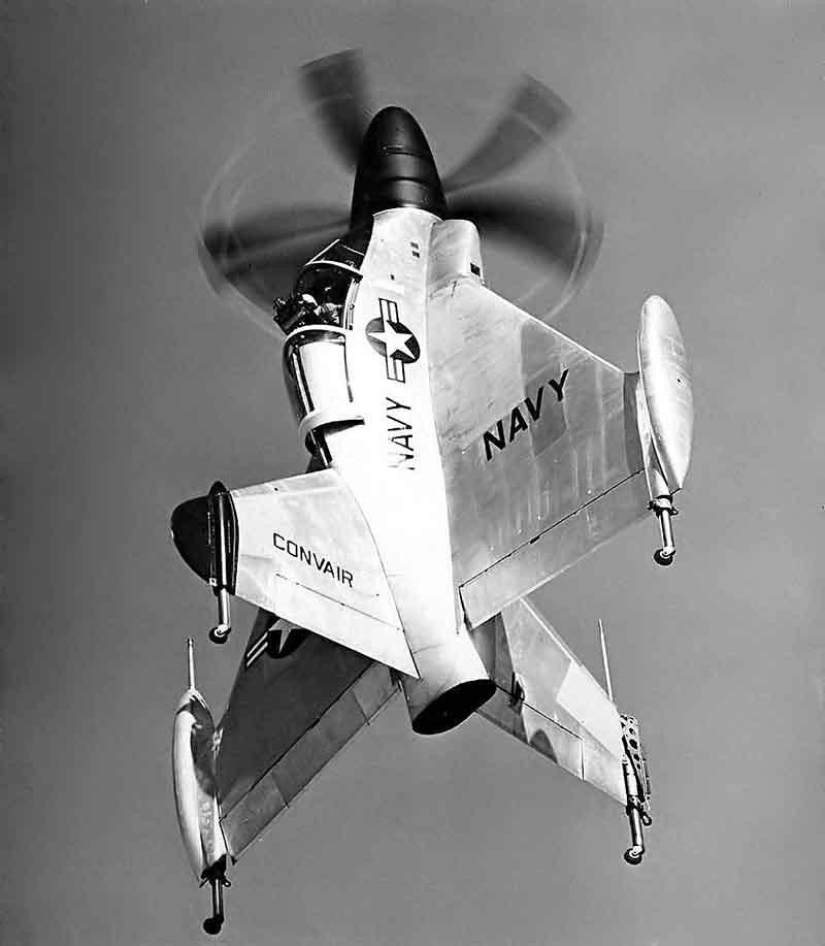
There have been several successful test flights, but, like many other air losers, this project was not able to fly away from the earth.
McDonnell Douglas X‑15
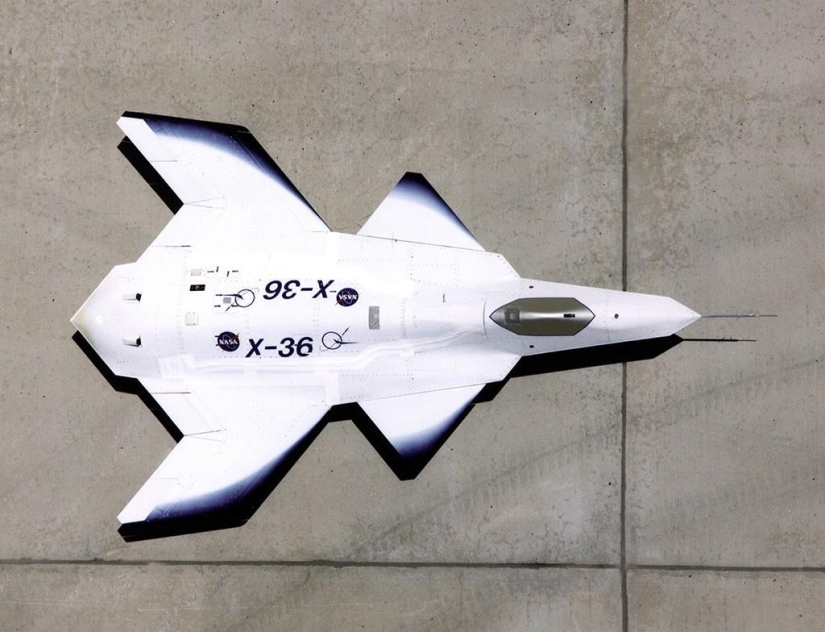
X‑15 is a very old project, but it was such a significant and anomalous leap forward that it remains unrivaled in aviation history. First tested in 1959, the experimental rocket plane, the X‑15 was 2 m in length, with two tiny meter stub wings on each side.
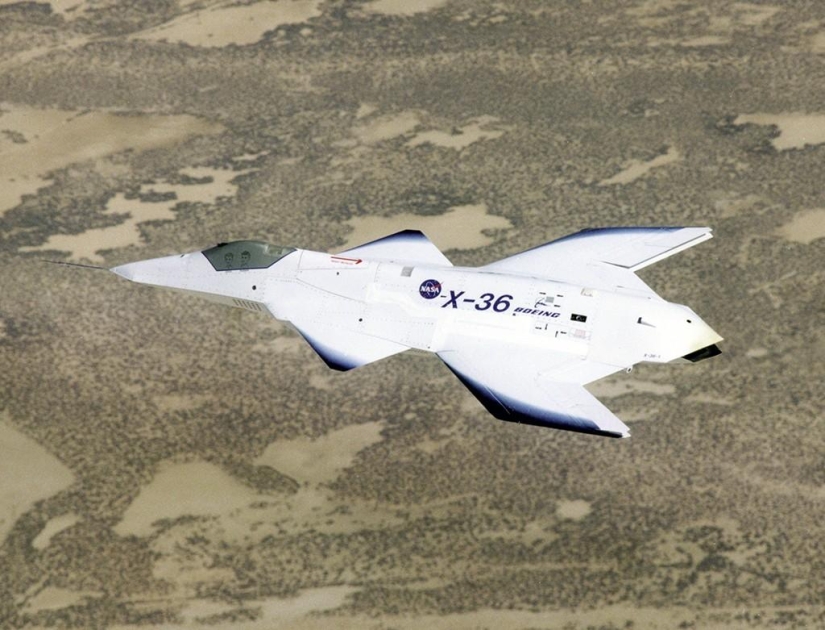
A series of tests showed that the rocket can reach a height of 107 km, so that the two missions were qualified as space flights. When this small plane passed through the dense layers of the atmosphere, its speed was six times higher than the speed of sound. The covering X‑15 was coated with a special alloy based on Nickel, which was similar to that found in the composition of meteorites. This alloy allowed the fastest aircraft on the planet to burn up in the atmosphere.
Blohm und Voss BV 141
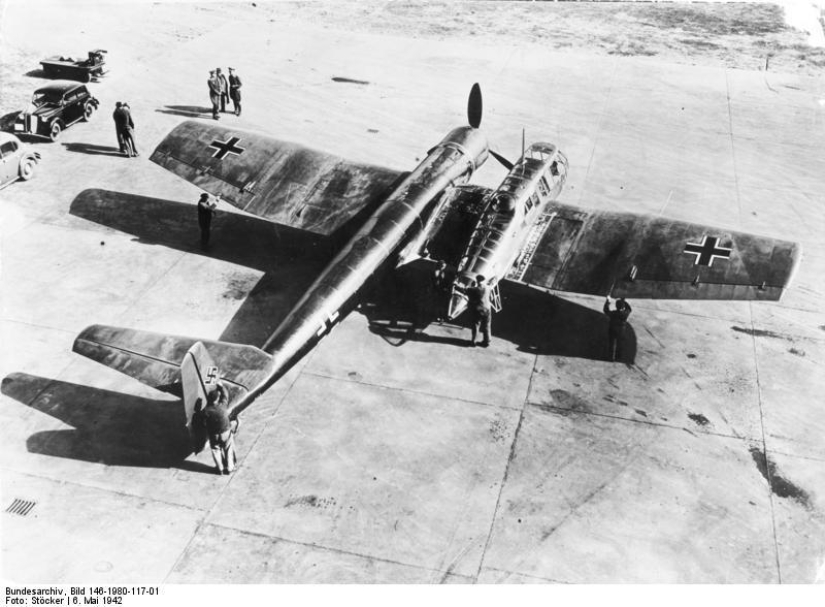
In the ordinary world symmetry is the rule that pervades everything from the eyes to the wings and fins. Engineers in creating their invention is also inspired by this principle, this rule holds true for aircraft engines. However, during the Second world war, German engineers from the company Dornier markedly deviated from this norm and created a reconnaissance aircraft, which tailplane was located on only one side, and the cockpit was located asymmetrically, on the opposite side.
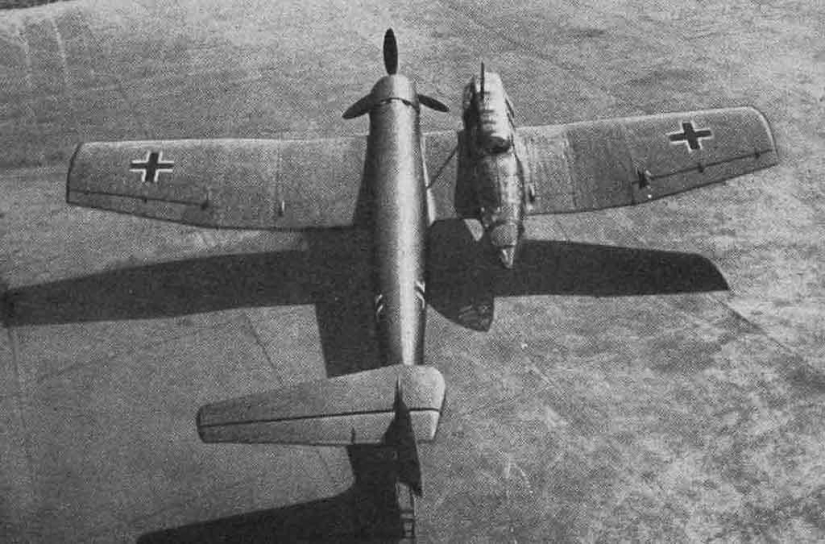
At first glance this design looks unbalanced. However, due to the fact that the cabin is located on the right side, and bearing propeller is left, during the flight, there is a torque, which helps the plane fly straight. As a result, this quirky device is not only successfully off the ground, but subsequently inspired many creators of modern sports aircraft of creating devices with a similar design.
Caproni Ca.60 Noviplano
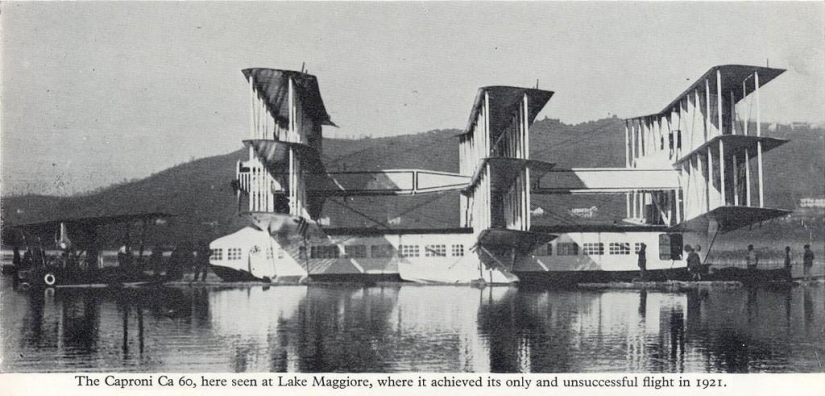
Consider a house on the water, crossed with a plane. This idea was the basis of the Caproni Ca.60 Noviplano. This machine set the "bar oddities" for airplanes is so high that even the "Red Fokker" richtofen compared to her looks very pale. The length of this aircraft was 23 m Weight — a whopping 26 T. This floating and flying machine was built to become the first transatlantic liner in the history of aviation.
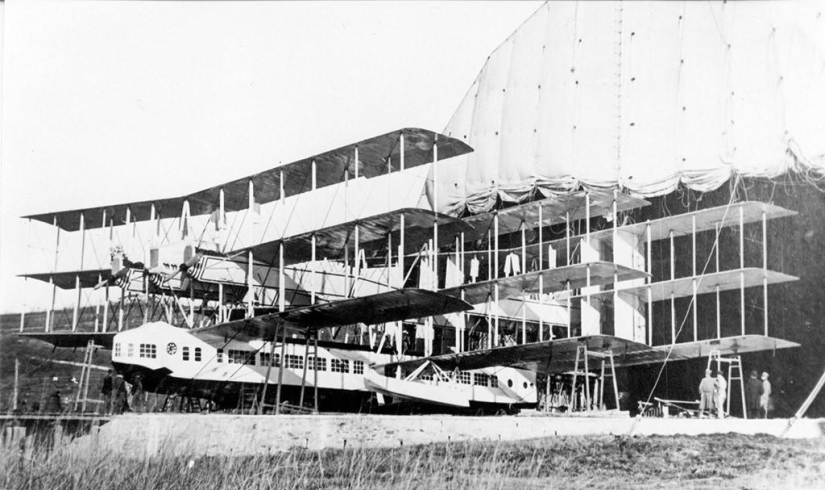
Based on the theory that with the help of a sufficient number of wings to levitate anything, engineers have created a stack of three wings in the front and three in the middle. Instead of a tail was used a third set of wings. This monstrous machine is probably can be classified as a triple Triplane, and nothing like either before or after it has not been built.
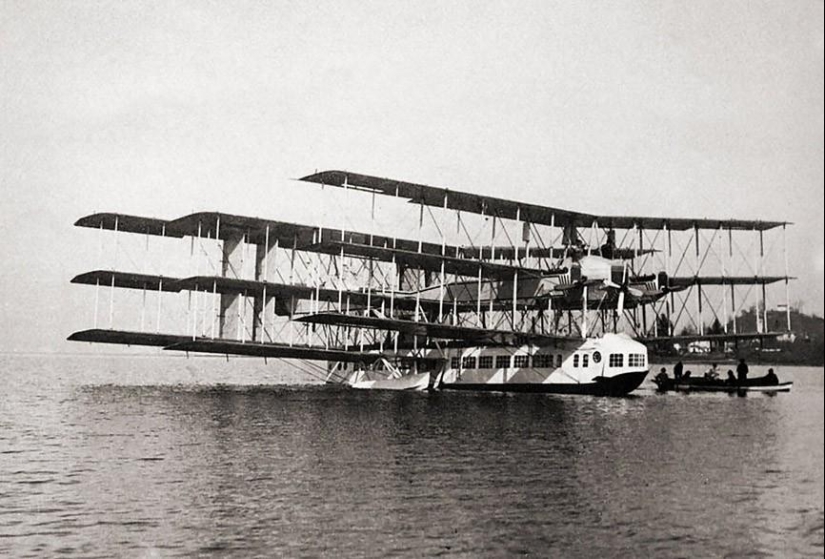
Off the ground was not a problem, but immediately after takeoff, at a height of 18 meters, the unit began to fall apart, and then fell into the water. Both pilots were killed. After this, the aircraft failed to fix, but later it burned down. It happened at night, and the details of this incident are still not fully elucidated.
Keywords: Aircraft | Aviation | Invention | Technology | Innovation
Post News ArticleRecent articles

It's high time to admit that this whole hipster idea has gone too far. The concept has become so popular that even restaurants have ...

There is a perception that people only use 10% of their brain potential. But the heroes of our review, apparently, found a way to ...
Related articles

There is a perception that people only use 10% of their brain potential. But the heroes of our review, apparently, found a way to ...

In the summer, some of our compatriots prefer to fly away from their hometowns. Even those who are afraid to fly. If you are one of ...

Recently in a network there was a rare series of photographs taken for advertising campaigns of the airline Air France in 1957. It ...

New Year's is a time to surprise and delight loved ones not only with gifts but also with a unique presentation of the holiday ...